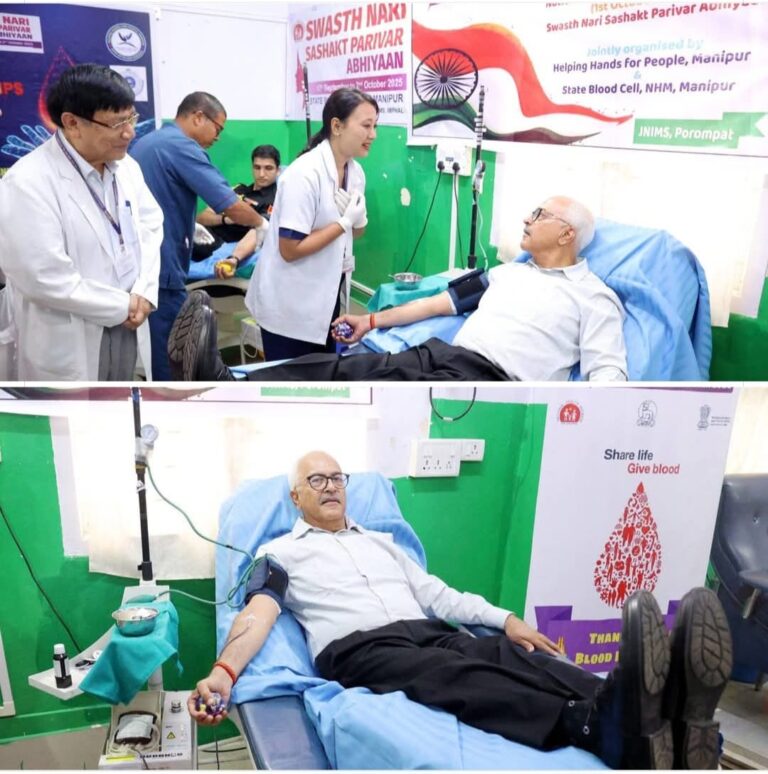Manipur MP Bimol Akoijam Criticizes Claims of Peace and Stability in the State
Summary
Manipur MP Bimol Akoijam has openly criticized claims of peace in Manipur, describing these as insincere and misleading. He cited recent violent incidents, including hostage situations involving women and children, as evidence of the ongoing instability. He pledged to address these issues in the upcoming Parliamentary session, stressing the government’s responsibility to ensure the safety of citizens.
Full Article
Introduction
When is peace truly peace? This question haunts the people of Manipur, where claims of stability clash with the grim realities on the ground. Bimol Akoijam, a Member of Parliament representing Manipur, has voiced strong objections to official narratives suggesting that the state has returned to normalcy. His words challenge any complacency, reminding leaders and citizens alike that until families feel safe, “peace” remains a mere word.
The complexities behind Manipur’s struggle for stability are rooted in longstanding ethnic tensions, political dynamics, and socio-economic disparities. This article delves into the details behind Akoijam’s statements, the local context, and the wider implications for governance and peace in this conflict-impacted state.
The Background of Conflict in Manipur
Historical Roots of Ethnic Tensions
Manipur has long been a tapestry of ethnic groups with unique identities and aspirations. Among the largest are the Meitei, Naga, and Kuki-Zo communities, each with deep-rooted ties to the land and differing visions for its future. Tensions between these communities often flare up, and the conflict isn’t merely political—it’s personal, cultural, and historical.
For decades, ethnic clashes have created divisions and, in turn, mistrust. The situation reached a peak in the past few years, with the state witnessing waves of violence, bandhs (strikes), and economic blockades. This turbulence has underscored the difficulty of balancing political interests with the preservation of community autonomy and cultural identity.
Governance and Civilian Impact
In regions where tensions persist, people’s daily lives are impacted in profound ways. Normal activities, from attending school to buying groceries, become sources of anxiety. For many in Manipur, peace is synonymous with mere survival. The recent resurgence in violence, including hostage-taking and kidnappings, further emphasizes the fragile nature of life for residents. This is where Akoijam’s critique gains its weight, as he accuses the government of downplaying a harsh reality that people live every day.
Bimol Akoijam’s Critique of “Peace”
Speaking Truth to Power
Akoijam, in recent statements, accused the government of spreading a “blatant lie” about the situation in Manipur. His sharp remarks liken the conditions in Manipur to those of a “banana republic,” a term charged with implications of lawlessness and lack of accountability. He argued that without facing the truth of hostage situations and violence, any notion of peace is hollow.
Why is His Criticism Significant?
As a member of the Lok Sabha, Akoijam’s outspoken stance draws nationwide attention to Manipur’s issues. His statements are more than just criticism; they represent a plea for honest dialogue and urgent action. In his view, addressing the unrest in Manipur should not be limited to the state level but requires intervention from national leaders, who have the power to enact meaningful change.
The Hostage Crisis and Government Responsibility
One incident that Akoijam highlighted involved the abduction of women and children, a situation that he believes points to the gravity of the security crisis in Manipur. His view is that the government’s inability to protect its most vulnerable citizens reflects a failure of leadership at the highest levels. He argues that both the state and Central governments need to focus on safety, accountability, and genuine reconciliation efforts.
Unpacking the Government’s Response
Claimed Efforts Toward Stability
Government officials have maintained that progress is being made toward peace, citing efforts to restore law and order. According to these claims, initiatives focused on mediation between communities and heightened security measures are gradually bringing calm to the region.
While there may be positive steps, Akoijam’s allegations bring another perspective, suggesting that surface-level calm doesn’t always signify real peace. Akoijam insists that these measures do not address the deeper, systemic issues—such as accountability for violence—that continue to erode trust.
Efforts to Mediate Community Disputes
To the government’s credit, initiatives to promote dialogue between conflicting groups have been attempted. There are government-sponsored forums where leaders from different communities can discuss grievances. However, Akoijam and other local representatives argue that these dialogues lack substance without addressing grievances on a deeper level. They push for more robust, transparent discussions that allow for real progress rather than temporary ceasefires.
What’s Next for Manipur?
The Role of Civil Society
In Manipur, civil society groups, local leaders, and organizations have played significant roles in advocating for peace. Akoijam’s statements could serve as a rallying cry, uniting these groups in their quest for justice and transparency. Civil society can act as a bridge between the people and government, channeling the needs of communities into actionable insights for policymakers.
Seeking Justice and Accountability
Akoijam’s commitment to raising Manipur’s issues in Parliament hints at a broader movement for accountability. He has expressed plans to bring the crisis to national attention, aiming to secure justice for the affected families and communities. His call for accountability is, in essence, a call to ensure that officials responsible for security lapses are held to account.
The Need for Comprehensive Security Reforms
If Manipur’s government is serious about peace, security reforms must be a priority. Rebuilding public trust involves more than police patrols; it means creating systems where citizens feel heard, safe, and empowered. Security reforms could encompass improved communication, quick response mechanisms, and transparent oversight, all of which are essential for fostering a sense of safety.
A Vision for a Peaceful Manipur
Peace in Manipur requires an approach that values the perspectives of all ethnic groups. If Manipur is to experience lasting peace, community leaders, local authorities, and the Central government need to work in unison toward a shared goal. This shared goal would involve finding a balance between regional autonomy and integrated governance, allowing the state to celebrate its diversity without compromising safety.
Conclusion
Manipur stands at a crossroads, with narratives of peace competing against realities of unrest. Bimol Akoijam’s call to action reflects the sentiment of a community that has grown weary of waiting for change. As he takes these issues to Parliament, his words resonate with every family in Manipur longing for a life without fear.
Akoijam’s vision for Manipur is clear: a state where peace isn’t just an illusion but a tangible reality. This can only happen when every citizen, from the hills to the valleys, feels secure and valued. The road to that future may be long, but Akoijam’s resolve reminds us that every step counts.
FAQs
1. Why does MP Bimol Akoijam disagree with claims of peace in Manipur?
He believes that ongoing violence and instability contradict official claims of peace, calling such statements insincere.
2. What specific incidents does Akoijam highlight in his critique?
He mentioned recent kidnappings of women and children as signs of the continued security crisis in Manipur.
3. How does Akoijam plan to address these issues?
He intends to raise them in the Parliament’s Winter Session, advocating for accountability and safety measures.
4. What impact does this situation have on everyday life in Manipur?
Frequent violence and instability disrupt daily activities, making basic tasks challenging for residents.
5. What long-term solutions are suggested for peace in Manipur?
Suggestions include community-led dialogues, government accountability, and comprehensive security reforms to rebuild public trust.


